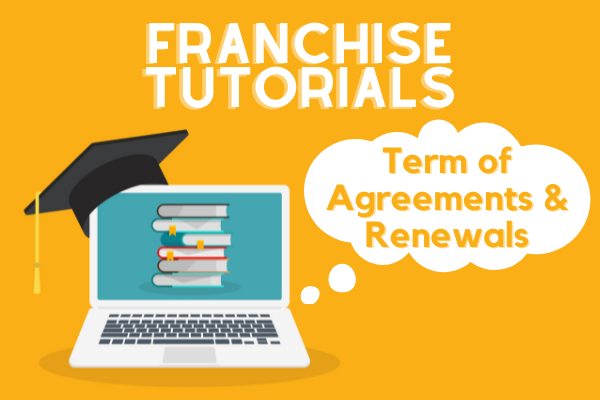Whether it’s 5 years or 20, all franchise agreements eventually come to an end. You’re not buying the right to use the brand but leasing it like the lease of a commercial space.
And like the lease of a commercial space, at the end of the term, you typically have an option to renew. The option is usually your choice, provided you meet the renewal conditions that include, but are not limited to, the following:
- You are in good standing and in compliance under the terms of the existing franchise agreement
- You have notified the franchisor of your desire to renew (typically 6 months prior to the end of the term)
- You sign a current franchise agreement, which may or may not have terms and conditions that are substantially different from the original agreement
- You pay a renewal fee
- You upgrade your location and equipment to the current standards, specifications and/or image
- You have secured a lease on the location
- You and your staff complete renewal training
- You sign a general release regarding the expiring license agreement
Length of Renewal Term:
When it comes to renewal lengths, each franchise is different. Some franchises allow unlimited renewals, while other franchises only permit one renewal term. Some renewal lengths are the same as the original, while others have a shorter renewal.
Which means it’s important to fully read the renewal agreement, even with a franchise lawyer. After all, it may be different from the original. Often there are changes in the agreement that reflect changes in the law, technology and/or demographics.
Renewal Process:
Provincial regulations in general don’t require a disclosure document upon renewal, unless there is a material change to the original or if you’re located in Ontario, Alberta, P.E.I. or New Brunswick (which do require new disclosure documents). But franchisors should lean on the side of caution and provide full disclosure, as even signing a new franchise agreement can be considered a material change.
If, as a franchisee, you choose not to renew the franchise agreement, the franchisor has the right to issue the franchise to someone else.
And most franchise agreements have a non-competition clause that would prevent you from continuing to operate the same business on your own. You would have to go into another line of business. That’s unless you renew the franchise agreement and sell the franchise assets to a new party and transfer the license. It’s an option that could allow you to get a greater return on investment, or in some cases, minimize your loses!
——————————————————————————–
Disclaimer
The opinions or viewpoints expressed herein do not necessarily reflect those of the Canadian Franchise Association (CFA). Where materials and content were prepared by persons and/or entities other than the CFA, the said other persons and/or entities are solely responsible for their content. The information provided herein is intended only as general information that may or may not reflect the most current developments. The mention of particular companies or individuals does not represent an endorsement by the CFA. Information on legal matters should not be construed as legal advice. Although professionals may prepare these materials or be quoted in them, this information should not be used as a substitute for professional services. If legal or other professional advice is required, the services of a professional should be sought.

